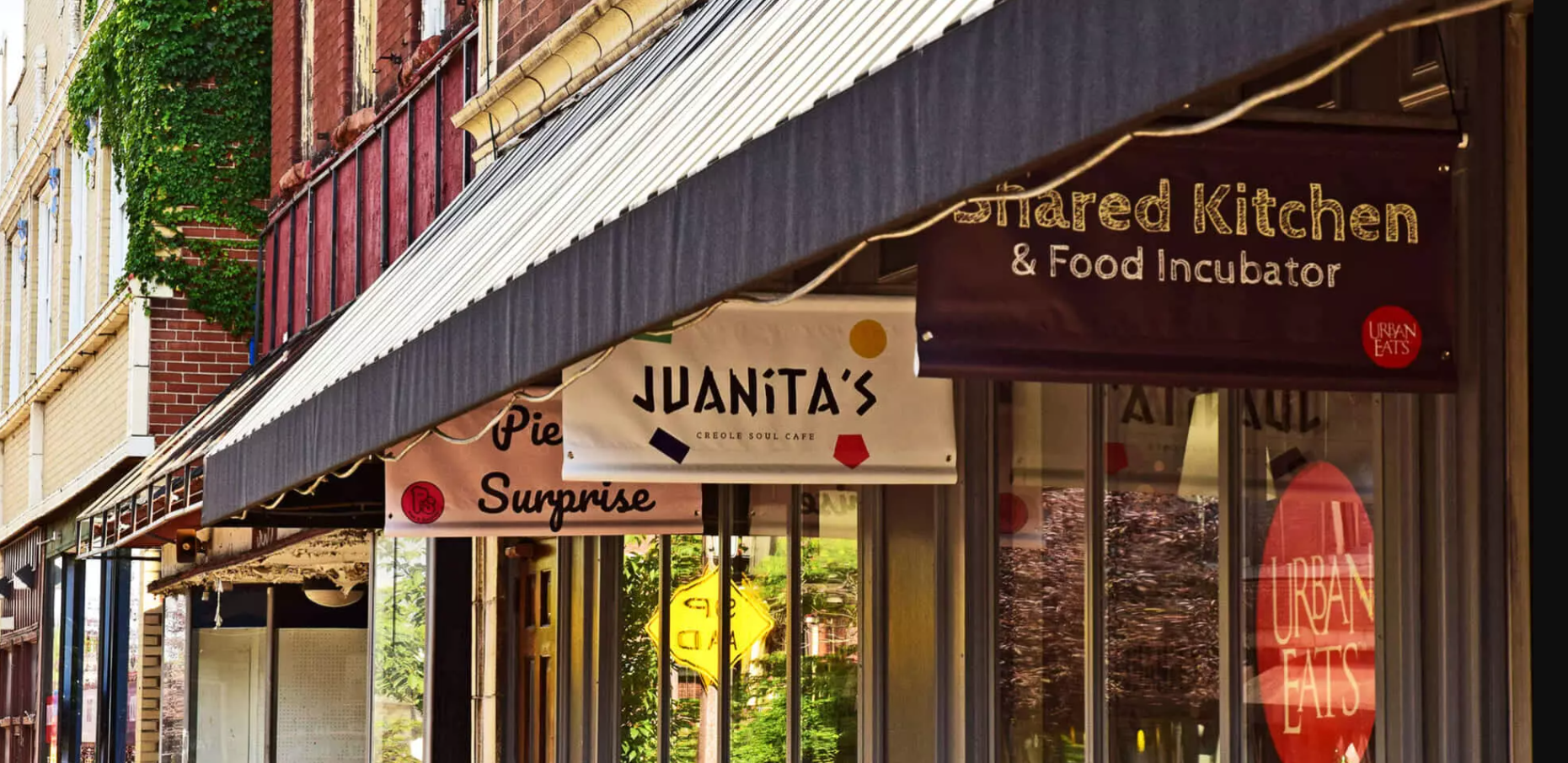As an urban planner, I like to think I help communities set up the rules and regulations that have a positive impact on residents and businesses. However, after all of this high-level planning and strategizing, it is the businesses, residents, and institutions that fill buildings and generate activity, not me. In other words, a plan is just a piece of paper or a website without creative individuals armed with dreams and ideas. With that in mind, let's talk about Urban Eats Neighborhood Food Mall and their role in the Dutchtown neighborhood of St. Louis.
Urban Eats Café operated for more than a decade before being forced to close its doors in March 2020 due to the pandemic. With their immediate future in the traditional dining and food service industry uncertain, owners John Chen and Caya Aufiero switched gears in a big way. They pivoted and made their café and kitchen space into a food incubator to help new food startup businesses. Food service is an intimidating industry to break into, but John and Caya guide new businesses through the City, state, and federal applications so that they can spend more time cooking and less time stressing over paperwork.
I know John and Caya's system pretty well because I went through it myself. I joined the kitchen in October 2020 to make baked goods and sell them at various farmers' markets and pop-ups around the St. Louis area. There were several active businesses there when I started and that number has only grown since then. Some of the businesses work out of the public-facing, former café space and others, like me, just use the kitchen and sell goods elsewhere. All from one location, you can get birria tacos, smothered porkchops and greens, keto-friendly muffins, Detroit-style pizza, chickpea-based chocolate lattes, organic hummus, and hand-rolled and boiled bagels. That's ridiculous!
As of the 2010 census, the demographic mix in the Dutchtown is 50% Black, 35% White, 6% Asian, and 8% from other races or two or more races. About 9% of the population was of Hispanic or Latinx origin. The demographic mix within the kitchen space is similar to the racial and ethnic makeup of the neighborhood around it. This probably goes without saying for most, but I'll say it anyways: the entrepreneurial spirit transcends demographic categories as long as opportunities do the same. Besides Urban Eats, there are several spaces along Meramec in Dutchtown that offer affordable lease opportunities to new businesses and, as a result, the corridor is filling up with interesting and innovative businesses.
For the most part, these businesses aren't, or can't be, concerned with venture capital and they don't have a team of accountants and professionals helping them through the various levels of government and their requirements. Many of these smaller projects wouldn't qualify for financial incentives or regulatory relief, and it might be too much of a burden for them to attempt it. If the help is too hard to get and the hurdles on the path to startup are impassable, a neighborhood or citywide plan created by people like me, albeit well-intentioned, may not have the desired effect.
In 2021, I want to refocus my attention so that I am open to learning from experiments like Urban Eats Neighborhood Food Mall. I had the wonderful opportunity to work alongside a creative and diverse mix of entrepreneurs and I am going to listen, with renewed interest, to the concerns of stakeholders like them when I create plans. As an urban planner, I want to empower entrepreneurs like John and Caya by listening and creating policies that encourage entrepreneur-driven revitalization and, if necessary, get out of their way.
Urban Eats Neighborhood Food Mall is located at 3301 Meramec St in St. Louis, MO (63118). Check out https://urbaneatsstl.com/ for more information about the businesses they host and the services John and Caya provide.
Photo courtesy of DutchtownSTL.org.

